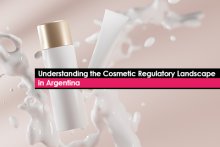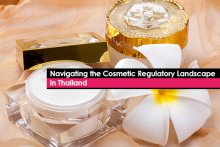Emerging markets in Asia Pacific, Latin America and Eastern Europe are increasingly important locations for drug development as sponsors pursue multinational programs to gain access to appropriate patient populations. And regulatory intelligence plays a crucial role in drug development and regulatory strategy.
Before we learn more about the role of regulatory intelligence in pharmaceutical industry let’s just have a quick introduction about RI.
What is regulatory intelligence?
The term was coined by Tony Cartwright in 2000 at a conference held in London on Global Regulatory Strategy.
As per Drug Information Association (DIA) has proposed the following definition.
|”The act of gathering and analysing publicly available regulatory information. This includes communicating the implications of that information, and monitoring the current regulatory environment for opportunities to shape future regulations, guidance, policy, and legislation.”|
As per Regulatory Intelligence Network Groups (RINGs)
|”Regulatory intelligence is the act of processing targeted information and data from multiple sources, analysing the data in its relevant context and generating a meaningful output – e.g. outlining risks and opportunities – to the regulatory strategy. The process is driven by business needs and linked to decisions and actions.”|
In layman language RI refers to the supervision of the use of medicines processed under certain rules and regulations.
While determining a set of rules is one of the major components to RI, many regulatory professionals mistake this as synonymous with regulatory intelligence process. However, RI is much more than just gathering information and defining rules.
As I have already mentioned above that there is more to regulatory intelligence than just designing the latest regulations and guidelines, here are a few other relevant roles that incorporate -
- Regulatory precedence
- Industry practices
- Regulatory agency opinions
- Competitor information
These aspects further help regulatory affairs agencies to develop successful regulatory strategies.
What type of information need to be considered for regulatory intelligence services?
The most obvious information type that springs to mind is well written published information that are widely available on the leading websites such as EMA and FDA.
Following are some of the probable information sources which yield relevant information on RI
- Regulatory agency websites
- Professional journals
- Search results
- Training courses
- Corporate history
- Personal professional history
- Conferences and seminars
- Information about competitors’ products
Role of regulatory intelligence in pharma
Regulatory intelligence, which was fabricated about 15 years ago in the biopharmaceutical field, has now become a relatively new arm of regulatory affairs globally.
RI is designed to take care of the regulatory processes that further involve drug development and approval procedure. Besides, historical verdicts of regulatory agencies are also referred as a lens for potential future decisions. The role of regulatory intelligence contributes to every biopharmaceutical company’s nitty-gritty by enabling the regulatory affairs teams provide the highest quality submissions to markets.
Regulatory Intelligence in emerging markets
As a result of helping RA teams provide high end submissions to agencies, sponsors now take this as an excellent opportunity to optimize overall development timelines and achieve registration goals.
On the other hand, companies that are currently suffering from stagnation of mature markets, patent expirations, and increased regulatory hurdles find the emerging markets as fertile ground.
The positive aspect
The markets are now dealing with a hot bed of huge population that exposes them to increasing prosperity and improving longevity at ease.
Emerging markets which have been termed as the Promised Land, will account for a third of the global pharmaceutical market by 2016.
The emerging markets involve the following three main clusters
- The BRICMT economies (those of Brazil, Russia, India, China, Mexico and Turkey)
- Second tier countries such as Southeast Asian nations
- Finally Africa
How RI works
Now it’s the responsibility of the concerned companies to balance their global competences with tailored approaches for regulatory intelligence functions for these emerging markets.
In order to join the rat race, more and more companies are experimenting apart from filing marketing application globally. Hence, the need to keep worldwide regulatory information in line has taken manifolds. That’s because even a minute change in the all-round landscape can alter the global regulatory strategy.
To ensure smooth flow, regulatory intelligence professionals pin down the requisites for conducting clinical trials globally, manufacturing specifications, and guiding personnel, responding strategic regulatory questions and filing marketing applications.
Regulatory intelligence process must be designed to define market-oriented and effective business strategies for each market segment. This will further save pharmaceutical companies from losses in terms of revenue and mercantile élan vital.
The scope of regulatory intelligence
In order to help the amateur professionals be au courant with the know-how of regulatory intelligence in pharmaceutical industry, many online academics offer live seminars, tutorials and publish professional journals beaming with latest information and modus operandi.
The learning objectives of regulatory intelligence encompass the following verticals -
- Sources for regulatory information
- Supervising the regulatory landscape i.e. periodic vs. ongoing
- Researching on answers to the regulatory questions by using an RI database and other relevant sources
- Discussions on how to analyse, summarize, integrate, implement and present RI
What starters should know about regulatory intelligence process in emerging markets?
Beginners should first try to comprehend what’s going on in the regulatory pharma world and measures to avoid regulatory pitfalls. And for this, they need to check out the regulatory environment in length. Only after understanding the products that are in the process of development and products that are successfully launched into the market, the novice manufacturers can ensure smooth running of their own drug development.
Awareness on latest regulatory requisites, certain regulatory trends and correct market analysis on global regulatory plays a crucial role in the successful drug development by any pharmaceutical company.
Here are a few other factors to be considered -
- Evaluating the risks of your product
- Analysing why others failed
- Realizing why their approval process was delayed than expected
- Finding out potential regulatory hurdles and setting up your development program accordingly
Even though the emerging markets are now considered as fertile ground, unless companies live up to the above factors, the regulatory hurdles cannot be completely avoided.
By going through our related posts, you’ll be convinced how powerful knowledge can be. Furthermore, these posts on regulatory intelligence can save you from spending time surfing the Internet, as you can easily get specifically tailor-made information covering your needs.
Hope you found this post useful!




